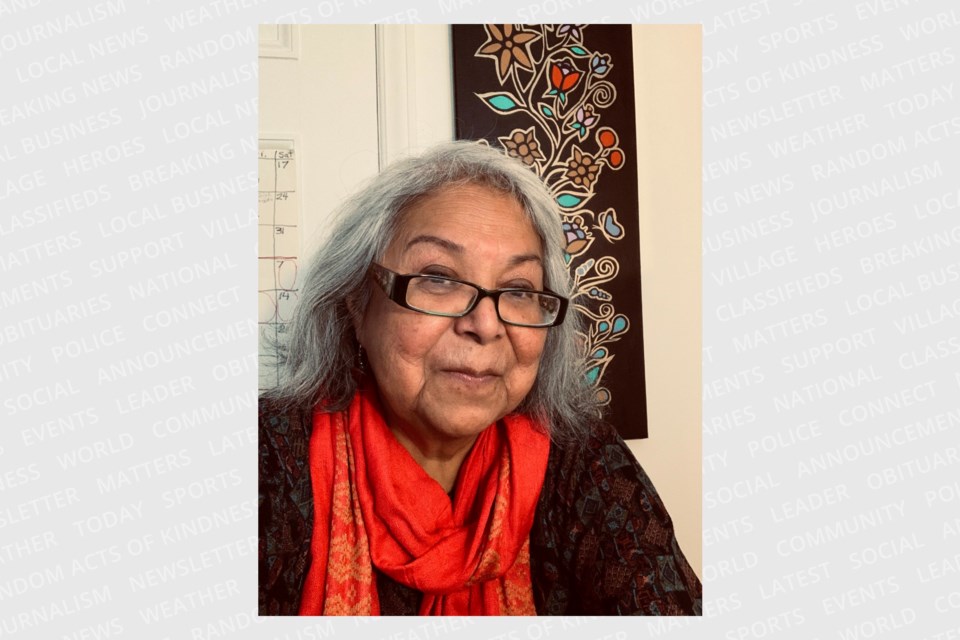A former Ojibwe language professor at Algoma University is being recognized by Canada for her work to preserve and revitalize Indigenous languages as a teacher, author and publisher.
Patricia Ningewance of Lac Seul First Nation is among the newest appointees to the Order of Canada, after spending nearly five decades teaching and writing about Anishinaabemowin.
“I’m just doing what I’m meant to be doing, and that makes me happy,” said Ningewance. “My work doesn’t seem like work, and it’s so much fun — I’ve gone all over the place because of my work.”
According to 2021 census data from Statistics Canada, 243,000 people reported being able to speak an Indigenous language — a decline from the 2016 census when that figure was around 251,000 speakers. More than 70 Indigenous languages are spoken in Canada.
She said fighting apathy towards native languages is a struggle because for a long time they were suppressed.
"The federal government policy, at one time, was to eradicate them — and they succeeded, because they’re not spoken by young people right now,” said Ningewance. “Also, it made the native languages second class.
“So, we who work in native language, we have to work against that, against that kind of negative attitude towards the language. But we’re doing it.”
Ningewance knows all too well about the federal government’s efforts to suppress Indigenous languages. She attended Shingwauk Residential School back in the 1960s as a 13-year-old, calling a dormitory there home prior to her high school years at Korah Collegiate and Vocational School.
Ningewance would return to Sault Ste. Marie in 2016 as an Anishinaabemowin teacher at Algoma University, which is situated on the former grounds of Shingwauk Residential School — a place designed to assimilate her and strip her of her language.
“There was a real sense of triumph, that I was teaching Ojibwe in a place where it was once forbidden and the fact that my office was right where I used to sleep,” she said. “It was very ironic.”
She would teach Anishinaabemowin at Algoma University for three years before moving back to Winnipeg, eventually becoming an assistant professor at the University of Manitoba.
“I was very happy being there, because it’s a wonderful, small university and I was doing something I had always wanted to do — and that was to teach young people who didn’t know their language to try to speak it,” Ningewance said of her time at Algoma University.
Ningewance is currently conducting research at the University of Manitoba alongside her grandson, Aandeg Muldrew, who is also working as a teacher of Anishinaabemowin at the Winnipeg-based university.
The pair is currently working on a dictionary project.
“I’m very elated and feel very privileged to be doing this, to be working beside my grandson who will follow in my footsteps,” Ningewance said.
The former Sault resident published 14 books dedicated to language learning; her last work, Reclaiming Our Territory, Word by Word: Grassroots Language Teaching, was published two years ago.
But Ningewance, now 70 years old, says her work is far from being over; a lot of people in her age group still speak Anishinaabemowin fluently because they grew up learning it from their elders — but that generation of speakers is beginning to dwindle.
She hopes to author scripts, novels and short stories in the Ojibwe language in the future in an ongoing effort to keep the language alive.
“Now is the time to preserve our language by developing terminology in our language, modernizing it using the language that we know, and also to create language materials that the people in the future can listen to, like audio-visual materials — movies, short films dramatizing modern situations — so that people can hear the language as it’s spoken,” Ningewance said.
Ningewance says she wants to do as much language work as possible with help from the grandson who is following in her footsteps by teaching and promoting the use of Anishinaabemowin.
“We’re going to disappear, so we have to leave something behind for the future learners to use,” she said.



